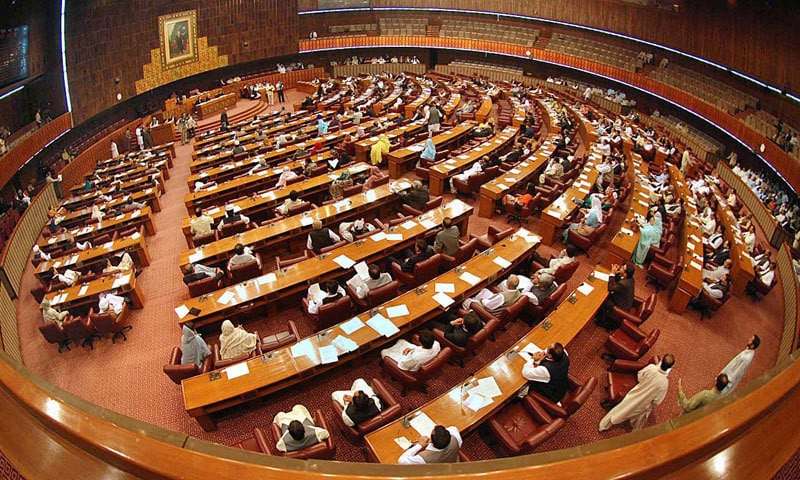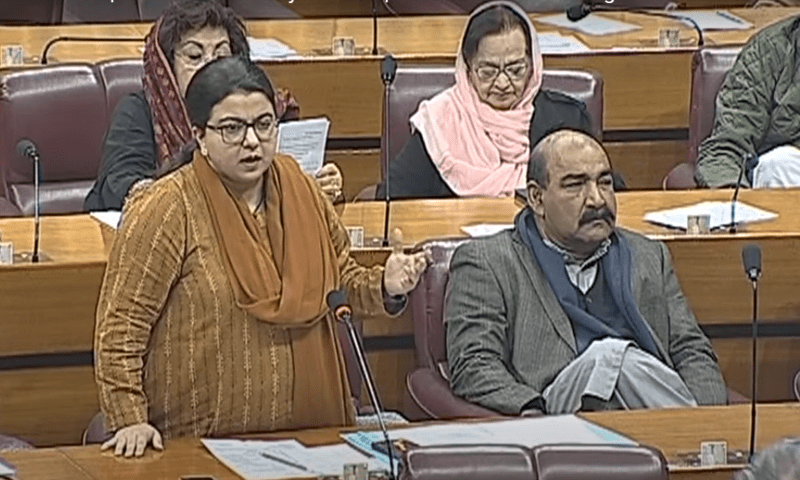The National Assembly of Pakistan has passed the much-debated Pakistan Electronic Crimes Act (PECA) Amendment Bill 2024, granting the government broader authority to regulate and control digital platforms. While introduced as a measure to curb the spread of illegal online content, the legislation has drawn fierce criticism, particularly from journalists and advocates for press freedom.
Key Highlights of the PECA Amendments
Introduction of the Bill
The PECA Amendment Bill 2024 was presented under a supplementary agenda by Federal Minister Rana Tanveer in the National Assembly. Despite widespread protests from the media, the bill was approved without opposition, raising serious concerns about press freedom and government overreach.
Journalists staged a walkout from the press gallery during the proceedings, decrying the amendments as a significant threat to free speech and independent journalism.
Establishment of the Digital Rights Protection Authority (DRPA)
One of the most significant provisions in the amendments is the establishment of the Digital Rights Protection Authority (DRPA). This new authority is tasked with:
- Regulating social media platforms and ensuring compliance with government directives.
- Removing unlawful content, including material that promotes violence, defamation, or threatens national security.
- Enforcing penalties and directives against individuals or organizations failing to adhere to regulations.
The DRPA will serve as a central body for overseeing digital rights and enforcing online compliance measures.
Broader Definition of Illegal Content
The amendments significantly expand the scope of “illegal online content,” now including:
- Material that promotes violence or incites hatred.
- Content deemed harmful to national security or public order.
- Defamatory content targeting individuals, organizations, or government entities.
- Any material related to pornography or obscenity.
Websites, applications, or communication channels violating these criteria can now be blocked by the government without prior notice.
Stronger Penalties for Online Violations
Under the new law, offenders spreading false information or “fake news” face:
- Up to three years in prison.
- Fines of up to Rs20 million.
This provision has been criticized for its potential misuse against dissenting voices, including media outlets reporting on government actions.
Creation of a Social Media Protection Tribunal
To expedite cases involving cybercrimes, the amendments propose the establishment of a Social Media Protection Tribunal. Key features include:
- The tribunal is mandated to resolve cases within 90 days.
- It will focus on cases involving online defamation, harassment, and the spread of prohibited content.
Dissolution of FIA’s Cyber Crime Wing
The Federal Investigation Agency’s (FIA) Cyber Crime Wing will be dissolved under the new amendments, with its responsibilities transferred to the National Cyber Crime Investigation Agency (NCCIA). This move has raised concerns over the centralization of power and lack of clarity regarding the NCCIA’s operational framework.
Criticism and Protests Against the Amendments
Press Freedom Concerns
Journalists and press freedom advocates have been vocal in their opposition to the amendments, arguing that:
- The vague language of the bill could allow for misuse and censorship.
- Critical reporting on government policies and actions could be suppressed.
- Independent journalism could face significant hurdles under the broad definition of “illegal content.”
The Pakistan Federal Union of Journalists (PFUJ) has called the amendments a “direct attack on press freedom.”
Opposition Voices
Opposition leaders have also raised alarms, accusing the government of using the law to suppress dissent and silence critics. They argue that the amendments are designed to stifle freedom of expression, rather than address genuine concerns over online security.
Government’s Defense of the PECA Amendments
Despite the backlash, the ruling government defends the amendments, stating that:
- The changes are essential to combat online hate speech, cyber harassment, and illegal content that undermines societal harmony.
- Safeguards are in place to ensure that legitimate dissent and free speech are not targeted.
- National security concerns necessitate stricter controls over online platforms.
The government maintains that the amendments are a step toward protecting public interest in an increasingly digital age.
Potential Implications of the Amendments
Impact on Social Media Platforms
Social media platforms operating in Pakistan will now be subject to stricter regulation, with requirements to:
- Remove content flagged by the DRPA within a specified timeframe.
- Share data with the government when requested.
- Comply with stricter operational and licensing criteria.
Failure to comply could result in hefty fines or bans.
Effect on Journalism
Media professionals fear that the amendments could lead to:
- Self-censorship, as journalists may avoid reporting on controversial issues to evade penalties.
- Reduced public trust in independent journalism, with the government wielding greater control over online narratives.
Future of the PECA Amendments
With the bill now passed in the National Assembly, it faces further scrutiny in the Senate. The debate is expected to continue as Pakistan navigates the complex balance between online freedom and national security concerns.
FAQs on PECA Amendment Bill 2024
1. What is the PECA Amendment Bill 2024?
The PECA Amendment Bill 2024 introduces changes to the Pakistan Electronic Crimes Act, expanding the government’s authority to regulate online content and establish new enforcement mechanisms.
2. What is the Digital Rights Protection Authority (DRPA)?
The DRPA is a new body proposed under the amendments to oversee the regulation of social media platforms, remove unlawful content, and enforce penalties for non-compliance.
3. Why are journalists protesting the amendments?
Journalists argue that the amendments could lead to censorship, misuse of power, and suppression of critical reporting, posing a significant threat to press freedom.
4. What penalties are introduced under the amendments?
Offenders spreading false information or illegal content can face up to three years in prison and fines of up to Rs20 million.
5. What happens next with the PECA amendments?
The amendments have passed the National Assembly and will be debated in the Senate for further approval or revisions.



